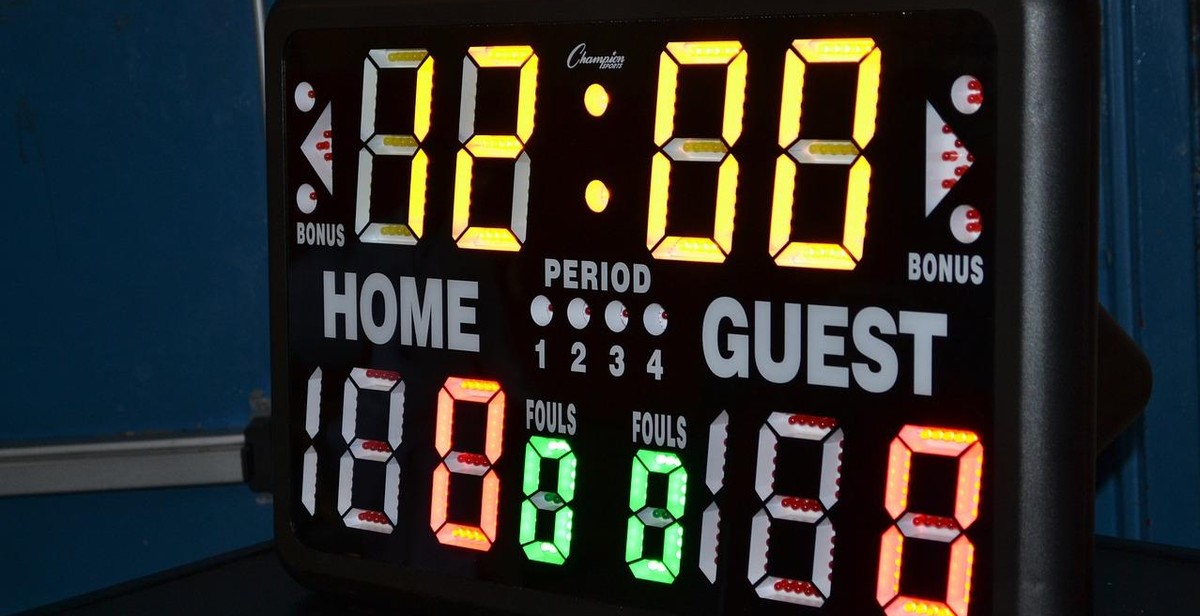How to Set and Achieve Goals: Strategies for Success in Personal and Professional Life
Setting and achieving goals is a crucial part of personal and professional development. Whether you’re looking to advance your career, improve your health, or learn a new skill, having a clear set of goals can help you stay focused and motivated.
As a professional article writer and content creator with years of experience, I have learned that setting and achieving goals is a process that requires discipline, focus, and perseverance. It’s not enough to simply write down a list of things you want to accomplish – you need to have a plan of action that will help you achieve those goals.
The Importance of Goal Setting
Goal setting is important because it gives us direction and purpose. When we have a clear idea of what we want to achieve, we can focus our energy and resources on making it happen. Without goals, we can easily become distracted and lose sight of what’s important.
In this article, I will share my strategies for setting and achieving goals in both your personal and professional life. From identifying your priorities to creating a plan of action, these tips will help you stay on track and achieve success.

Why Goal Setting is Important
Goal setting is an essential tool for success in all aspects of life, both personal and professional. Here are three reasons why goal setting is so important:
Provides Clarity and Focus
Setting clear and specific goals helps you to clarify what you want to achieve and focus your efforts and resources towards achieving those goals. When you have a clear idea of what you want to achieve, you can create a plan of action that will help you to reach your goals more efficiently and effectively.
Motivates and Inspires
Goals provide motivation and inspiration to keep pushing forward. When you have a clear goal in mind, you are more likely to stay motivated and committed to achieving it. Setting challenging and meaningful goals can also inspire you to reach new heights and achieve things you may not have thought possible.
Measures Progress and Success
Goal setting allows you to measure progress and success along the way. By setting specific and measurable goals, you can track your progress and see how far you have come. This can help you stay motivated and adjust your plan of action if necessary to ensure you reach your goals.
| Benefits of Goal Setting | ||
|---|---|---|
| Provides Clarity and Focus | Motivates and Inspires | Measures Progress and Success |
Overall, goal setting is a powerful tool that can help you achieve success in all aspects of your life. By setting clear and specific goals, staying motivated and committed, and measuring progress along the way, you can achieve great things and reach your full potential.

Types of Goals
Goals are the foundation of personal and professional success. They provide direction, focus, and motivation to achieve desired outcomes. There are three types of goals that individuals can set:
Long-term Goals
Long-term goals are objectives that take a considerable amount of time to achieve. They typically have a timeline of several years and require significant planning and effort. Long-term goals are essential because they provide a sense of purpose and direction for individuals.
- Examples of long-term goals include buying a house, starting a business, or earning a degree.
- Long-term goals should be specific, measurable, achievable, relevant, and time-bound (SMART).
- Breaking long-term goals into smaller short-term goals can help individuals track progress and stay motivated.
Short-term Goals
Short-term goals are objectives that can be achieved within a few days, weeks, or months. They are stepping stones towards achieving long-term goals and help individuals stay focused and motivated.
- Examples of short-term goals include completing a project, learning a new skill, or exercising regularly.
- Short-term goals should also be SMART.
- Breaking down long-term goals into smaller short-term goals can make them more manageable and achievable.
Process Goals
Process goals are objectives that focus on the actions and behaviors necessary to achieve long-term and short-term goals. They are critical because they help individuals develop the habits and routines that lead to success.
- Examples of process goals include waking up early, practicing mindfulness, or networking with industry professionals.
- Process goals should also be SMART.
- Tracking progress towards achieving process goals can help individuals stay motivated and develop positive habits.
| Type of Goals | Timeline | Examples |
|---|---|---|
| Long-term Goals | Several years | Buying a house, starting a business, earning a degree |
| Short-term Goals | Days, weeks, or months | Completing a project, learning a new skill, exercising regularly |
| Process Goals | Ongoing | Waking up early, practicing mindfulness, networking with industry professionals |

Setting SMART Goals
Setting SMART goals is an effective way to achieve success in both personal and professional life. SMART stands for Specific, Measurable, Achievable, Relevant, and Time-bound. Let’s take a closer look at each of these components:
Specific
When setting a goal, it’s important to be specific about what you want to achieve. Vague goals are difficult to measure and achieve. For example, instead of setting a goal to “get in shape,” set a specific goal to “lose 10 pounds in 2 months.”
Measurable
A measurable goal allows you to track your progress and stay motivated. Make sure your goal has a specific metric that you can measure. For example, if your goal is to increase sales, set a specific percentage increase that you want to achieve.
Achievable
Your goal should be challenging but achievable. Setting an unrealistic goal can lead to frustration and disappointment. Consider your resources and abilities when setting your goal. For example, if you’ve never run a mile before, setting a goal to run a marathon in a month may not be achievable.
Relevant
Your goal should be relevant to your personal or professional life. Make sure your goal aligns with your values, interests, and long-term objectives. For example, if your long-term objective is to start your own business, setting a goal to improve your marketing skills is relevant.
Time-bound
A time-bound goal has a specific deadline for completion. This helps you stay focused and motivated. Make sure your goal has a specific timeline for completion. For example, if your goal is to write a book, set a specific deadline for completing the first draft.
- Specific: Be specific about what you want to achieve.
- Measurable: Set a specific metric that you can measure.
- Achievable: Ensure your goal is challenging but achievable.
- Relevant: Make sure your goal aligns with your values and long-term objectives.
- Time-bound: Set a specific deadline for completion.
By setting SMART goals, you can achieve success in both your personal and professional life. Remember to regularly review your progress and make adjustments as needed. With determination and perseverance, you can achieve anything you set your mind to.

Strategies for Achieving Goals
Setting goals is easy, but achieving them requires effort, commitment, and a solid plan of action. Here are some effective strategies to help you achieve your goals:
Break Goals into Smaller Tasks
Breaking your goals into smaller, more manageable tasks is a great way to make them more achievable. This strategy helps you focus on one task at a time, which makes the overall goal feel less overwhelming. For example, if your goal is to run a marathon, start by setting smaller goals like running a mile or two every day, and gradually increase your distance over time.
Create a Plan of Action
Creating a plan of action is essential for achieving your goals. This plan should include specific steps you need to take to reach your goal, as well as a timeline for completing each step. It’s also important to identify any potential obstacles or challenges you may face along the way and come up with solutions to overcome them.
Track Progress
Tracking your progress is crucial for staying on track and motivated. Use a journal or a tracking app to record your progress and celebrate each milestone you reach. This will help you stay focused on your goal and give you a sense of accomplishment as you make progress.
Stay Accountable
Staying accountable is another key strategy for achieving your goals. Share your goals with a friend, family member, or mentor who can hold you accountable and provide support and encouragement along the way. You can also join a group or community of like-minded individuals who share similar goals and can offer support and motivation.
Celebrate Success
Finally, don’t forget to celebrate your successes along the way. Celebrating your accomplishments, no matter how small, will help you stay motivated and focused on your goal. Treat yourself to something special when you reach a milestone or complete a task on your list. This will help you stay positive and energized throughout your journey.

Overcoming Obstacles
Setting and achieving goals is never a smooth journey. Obstacles are inevitable, and they can derail even the most motivated individuals. However, with the right mindset and strategies, you can overcome any obstacle and stay on track towards your goals.
Identify Obstacles
The first step in overcoming obstacles is identifying them. Take some time to reflect on potential roadblocks that may hinder your progress. These could be external factors such as lack of resources or internal factors such as fear or self-doubt. Write them down and be specific.
Create a Plan to Overcome Obstacles
Once you have identified your obstacles, create a plan to overcome them. Break down each obstacle into smaller, actionable steps that you can take to mitigate or eliminate it. For example, if lack of resources is an obstacle, you could research and apply for funding or seek out partnerships. If fear is an obstacle, you could practice visualization and positive self-talk.
It’s important to note that your plan may need to be adjusted as you go along. Stay flexible and open to new solutions.
Stay Committed and Focused
Finally, staying committed and focused is key to overcoming obstacles. Remember why you set your goals in the first place and keep that motivation at the forefront of your mind. Stay organized and track your progress to stay accountable. Surround yourself with a supportive network of individuals who will encourage and motivate you.
With these strategies, you can overcome any obstacle and continue on your path towards achieving your goals.

Conclusion
Setting and achieving goals is a crucial aspect of personal and professional success. It requires a combination of focus, planning, and execution to ensure that you reach your desired outcome. By following the strategies outlined in this article, you can set effective goals that align with your values and motivations, break them down into actionable steps, and track your progress along the way.
Key takeaways
- Set specific, measurable, achievable, relevant, and time-bound (SMART) goals.
- Break your goals down into smaller, manageable tasks.
- Build habits and routines to support your goals.
- Track your progress and adjust your approach as needed.
Final thoughts
While setting and achieving goals can be challenging, it is also incredibly rewarding. By taking the time to define what you want to accomplish and then taking actionable steps to get there, you can make significant progress in both your personal and professional life. Remember, success is a journey, not a destination, so be patient, stay focused, and enjoy the process!
